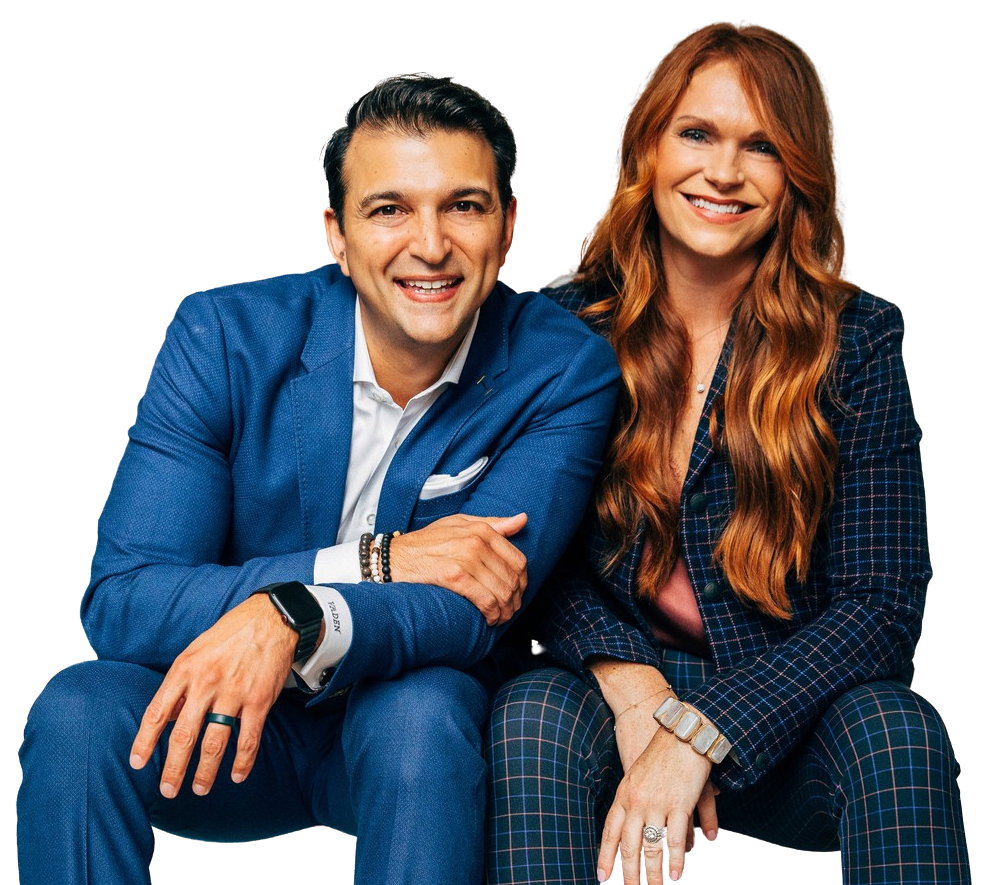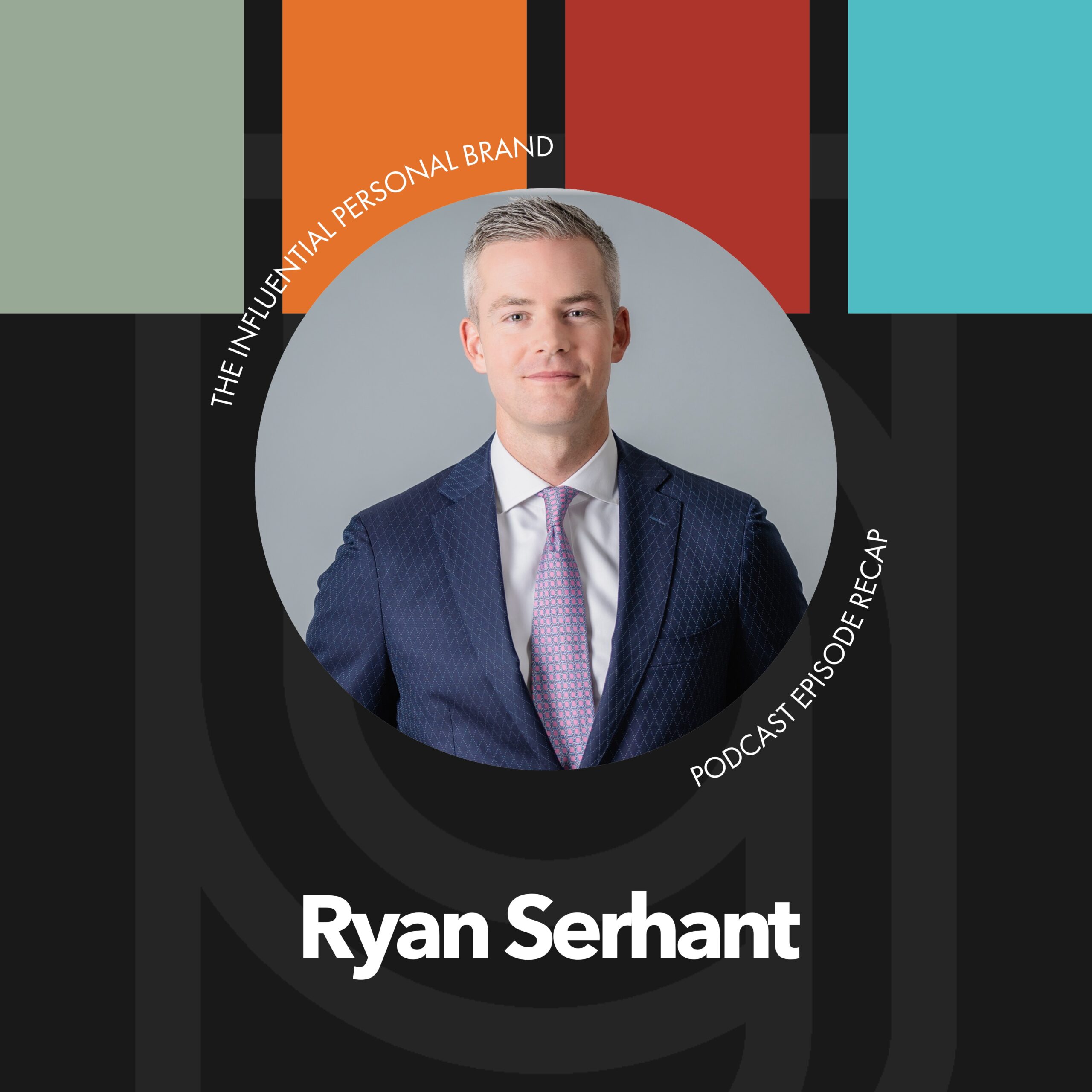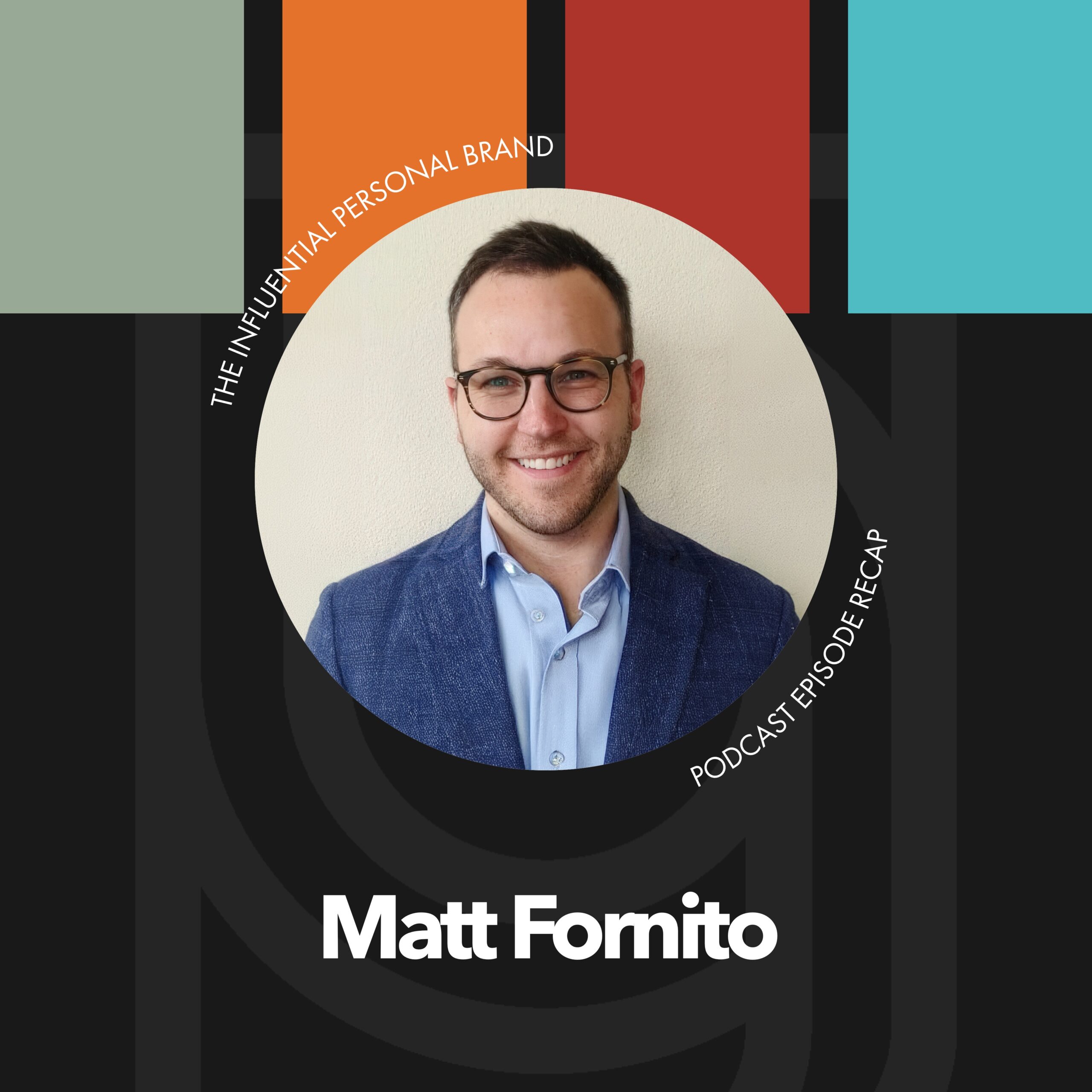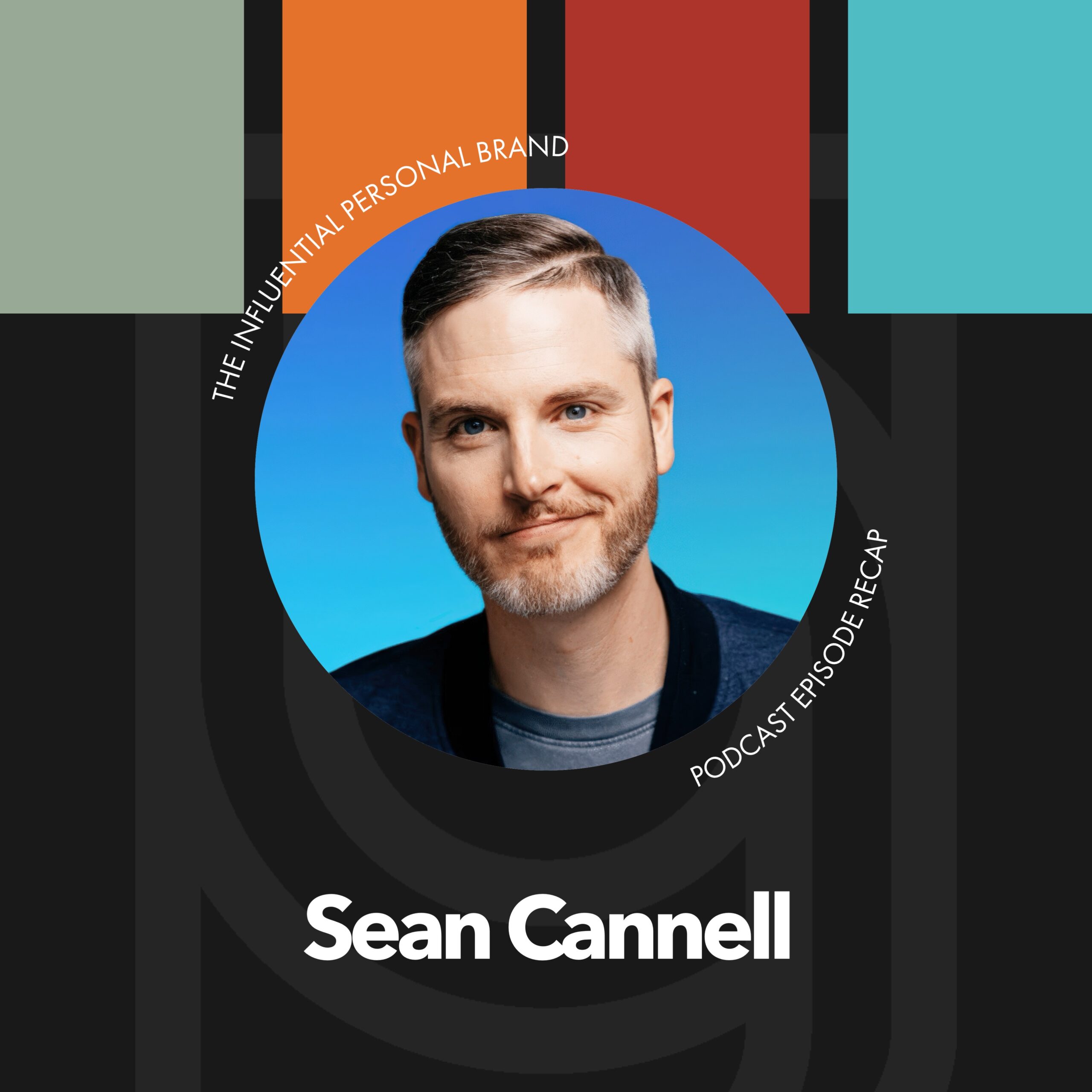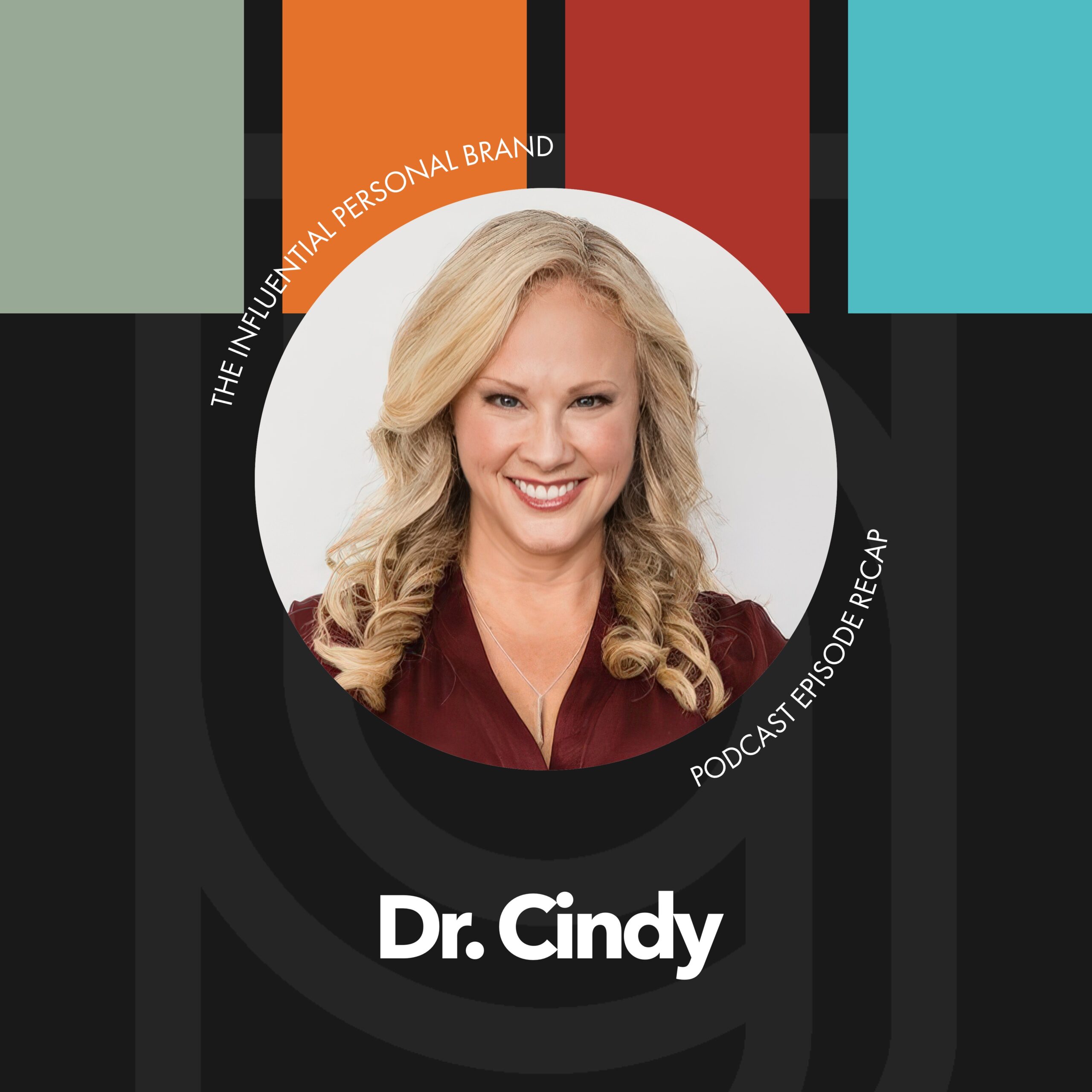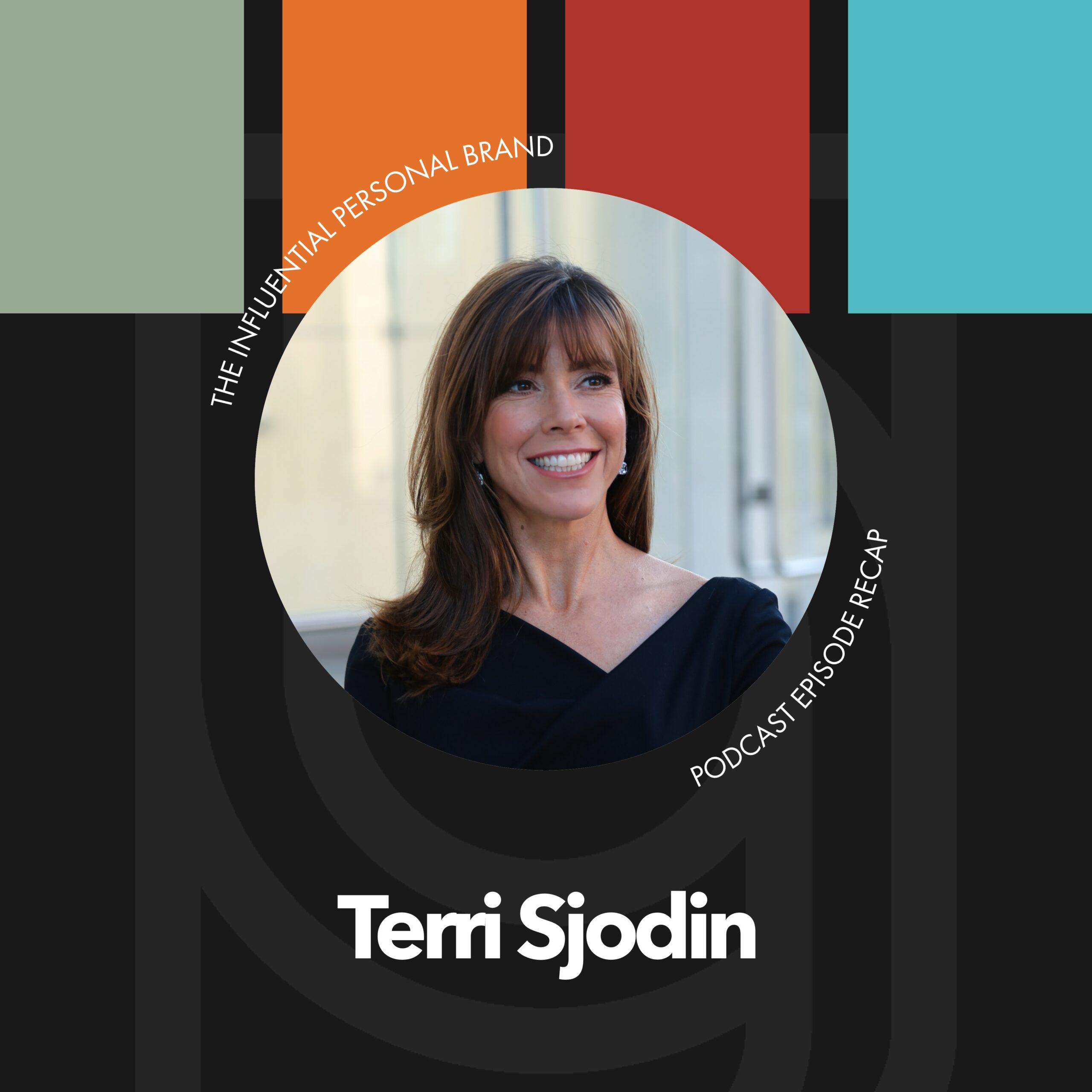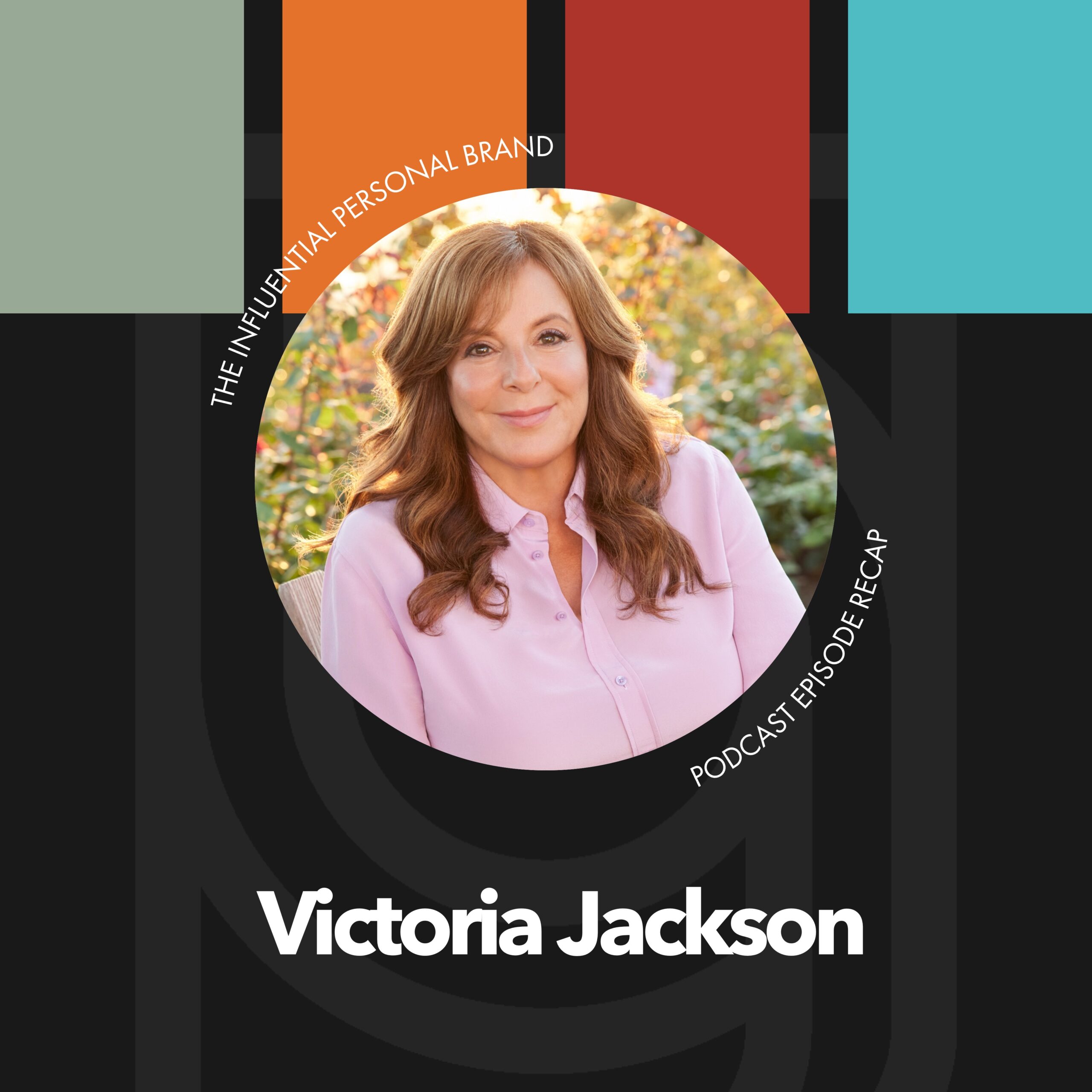RV: (00:00)
Hey brand builder and welcome to the special recap edition of the influential personal brand podcast, joined by my wife, CEO brand builders group, J Vaden here to bring you our top three, three and three. Today we have the same three, so we’re going to share,
AJV: (00:15)
Well, not entirely the same.
RV: (00:18)
We never see anything exactly the same. That’s part of the fun of doing a show with your spouse.
AJV: (00:22)
Maybe the same three categories but they’re quite different points on the categories.
RV: (00:27)
Yeah, yeah, for sure. So I’m like always go listen to the episode. It’s, it’s
AJV: (00:31)
Especially if you think you want to have a podcast, be a podcast host, grow your podcast, monetize your podcast, or do anything with a podcast, you should listen to this one.
RV: (00:43)
There’s not many people bigger than Jordan in the podcast world, and I mean that’s the first thing that jumped out about too is you’ll see that even as a guest, he’s extremely direct. He’s very pointy and sharp. They used to teach when I was in radio coaching, they used to say that all the time. You need to be sharp.
You need to be pointy. And you need to be opinionated and he does a really good job of that and all these other things that we’ll talk about. But I think if I had to classify one big overall theme to his success, and Agee and I talked about this, we both listened to it separately and came to the same conclusion. UI think it’s the way he thinks about his audience. Yeah.
AJV: (01:21)
And his guests.
RV: (01:22)
Yeah. So, so the mindset that he has, you know, the word that he used that really resonated with me as fiduciary. To be a fiduciary of your audience’s interest, meaning that the whole point is you put the audience first, not the guest, and that means you do whatever it takes to provide value to the audience, even if it means you’re asking tough, difficult questions, which I felt, I was kind of surprised by that. I think a lot of hosts don’t actually do that. They don’t, they don’t necessarily think I’m going to challenge the guests for the benefit of the audience.
AJV: (01:59)
Yeah. It’s really interesting because we went to go see this amazing movie that I highly recommend too, anyone to go see, but especially women. We went to go see Bombshell and Charlise Theron and Nicole Kidman and Margot Robbie, they were just phenomenal. It was incredible. But here’s what it really made me think about is that Jordan has this legal background and it really comes through in the way that he is so pointed and he is so direct and he does feel like he has this fiduciary responsibility.
And the whole concept of, Hey, having guest on isn’t to make them like you more. It’s not just to, you know, boost their ego so that you can get closer to people that they know, whether it be politicians or high level CEOs or people in Hollywood. It’s no, it’s to provide a good interview and to provide the answers to the questions that your audience wants to know.
AJV: (02:53)
And I felt like that’s really a unique take on what an attorney does. An attorney has a legally binding fiduciary responsibility to the person they’re representing. In this case, he’s saying, the person you represent is your audience, is not the guest. It is not the guest. And as I was listening to his interview, it made me think about Megan Kelly and specifically Charlise thereon who plays Megan Kelly and this movie bombshell. And they talk about this big, you know, Republican convention where she got a lot of hate.
You’ve got a lot of haters. But she was committed to asking the hard questions. It wasn’t about rubbing shoulders with the presidential nominee. And It wasn’t about getting more people and more viewers for a show. It wasn’t about making people like her more or her being seen side by side with a potential future president. It was about asking the hard questions and providing the answers.
Her audience wants to know and she got a lot of hate for it, but you know what? She got an amazing interview and ask the hard questions and didn’t back down. And she provided information to her audience, which is what Jordan is. His whole message is about as a podcast host, it’s to provide the necessary information to your audience and your audience are the listeners. It is not about rubbing shoulders with the guests and that is a really different perspective.
RV: (04:15)
Well, and I think, too, it also shares, that’s where courage comes in as a podcast host because you go, well, I mean that’s a lot. It takes a lot of courage, especially if you’re interviewing influential people to to ask the difficult questions so that that’s an interesting parallel with Megan Kelly. It’s great. Yeah. I didn’t know you were going to say that. We didn’t talk about that and event spontaneous stuff going on in Wifey’s brain.
AJV: (04:39)
I really love that. I think it’s really interesting for this whole concept of the fiduciary responsibility to the people you serve and in this case it’s your audience and it’s not just to have people on the show to highlight your show or try to be famous or whatever it was. No, it’s verified, interesting and relevant information that your audience wants. And I love that.
RV: (05:02)
The next thing that he, that he said that I think is truly different from a lot of podcast hosts was his level of preparation. Oh my gosh, it’s insane. It’s crazy. Like he actually reads the books of the people he’s interviewing. Like, thank you Jordan. That is tremendously difficult. It’s awesome. I mean it’s awesome, but, but the thing that really hit me hard about that was that he said, look, if you’re not doing that level of preparation, then there’s nothing unique about your interview of that guest.
Meaning that if you’re asking the same surface level questions that every interviewer is asking, there’s no reason for them to listen to your show versus to listen to any of the other hundred interviews they have done. It’s the preparation that you’ve done that allows you to know very specific, pinpointed things you can ask that are of interest to you, which he also said, which I think is important, is have people on that are interesting to you, but also that you you’re able to know this is what my audience would want to know specifically from this person. Not just the general stuff that this person says all the time to everybody.
AJV: (06:10)
Yeah. Well I love, I loved all of that cause I think it really provides a lot of insight. It’s like if you’re going to ask the same old questions, why listen to your interview, I could get this from anyone. But it’s doing that deep research and deep dive into that individual, their life, their content, whatever, that gives you the insights.
But that’s not what I loved about that particular section of this interview. What I loved is about why he did it. And he said, listen, I’m not exceptionally funny. Like Conan O’Brien was his, his example. Ellen DeGeneres would have been my example. And he said, I’m not exceptionally funny, like even somewhere on the list.
But he goes, I’m not exceptionally famous. I’m not this, I’m not that. And he said, so what was going to be my competitive advantage? He said, I needed a competitive advantage that set me apart from all the other podcast hosts. And I love too as as many successful people say the real genius behind that was his girlfriend.
RV: (07:09)
Yeah. Now his wife. Yeah. And, and he has a new baby.
AJV: (07:13)
I had a new patient, but I love that he said, I’ve got to find my competitive advantage in the podcast space and this is his competitive advantage. And I think that’s really relevant for all of you listening. It’s, you can’t just have guests on and interview them today and expect you’d be any different than all the other thousands and hundreds of thousands.
RV: (07:31)
I think a lot of guests, a lot of podcast hosts don’t even think about that. They don’t even think about the question, how is my interview with this guest different from all the other, the interviews that this person has done. Yeah.
Click here to get our FREE Video Course, First Step to Famous
AJV: (07:43)
I just think it’s like, it just made me think, it’s like what is your competitive advantage? And this was his chosen path of, Hey, no one else is doing this. That’s for sure. Spending 10 to 20 to 30 hours of research per guest. Yeah, that’s crazy. But that’s his competitive advantage. So what’s yours? I love that.
RV: (08:04)
Yeah. And, and you might be sitting there asking the question, how in the world does he have that much time to spend preparing for the guests? Well, it’s because podcasting specifically ads and affiliates. For those of you that have been through phase one where we talk about the five ways to monetize a brand ads and affiliates is his primary business model. So this is his one way that he makes money.
Like it’s the primary thing that all of the things point to and that’s why it’s one of the four things you have to get clear on in phase one is what is your primary business model. Now specifically if you’re looking at hosting, whether it’s podcasting, but I think this would also apply to hosting a YouTube show or a Facebook watch page or a TV show, any type of show hosting of the day. This is really great because he talks about there’s really only two effective to monetize, and this really clarified for me because I’ve heard people talk about both, but they presented as there’s only one way.
RV: (09:03)
It’s either this or this and he’s saying, no, it’s, it’s one of these two. There are two. And so I’ll talk about the first one because the first one I think is more representative of the, of the podcast, like the, the, the former podcast I used to host. And I guess we can drop a little bit of a hint here. It looks like we’re going to have a future podcast coming that I’m going to be hosting that’ll be in this vein.
And here’s what it is, a general mass audience appeal show. So, so that’s the first way is like if you’re going to sell ads and affiliates, if that’s going to be the way you monetize your following, then you, it’s all based on how many people are listening, which means you need to talk about the topics. That’s a huge, yeah, everybody is interested or there’s a huge total addressable market so that you are attracting a bunch of bunch of people and you’ve got to have a strategy for constantly growing your reach because the more people listen, that is the more money.
And I think that’s what we all think of, which historically has been sort of the broadcasting and media model, right? It’s like all the major CELT, television, cable television networks. It’s like you need to have something that gets the most amount of people watching. But then the other way to monetize I think is actually more representative of what this podcast that you’re listening to is an example of. So I thought it’d be good for you to hit that right.
AJV: (10:28)
Narrowed niche topic in which you only talk about and try to promote your products and services. So it’s like you’ve got to monetizing ways of, you know, making sure your podcast makes money. You’ve got selling ads and affiliates, which is that mass broad general appeal podcast which Rory just talked about, yeah.
And then you’ve got this very specific narrowed niche audience appeal, which is more like the influential personal brand podcast and which we’re not trying to get tons of ads and affiliates even though we’ll take them. So spread the word, but it’s more about introducing people to what we do. It’s our products and services and how to grow and monetize. Your personal brand. So this is very representative of a very niche audience with a very niche service that we offer versus appeals to all humans or at least the majority and which you can sell tons of ads and affiliate.
RV: (11:20)
And I think this is really important for you to be clear on because people who have podcasts struggle with this because they’re constantly going back and forth between the two. It’s like, Oh my gosh, I need to get more listeners for my show. I should talk about these topics. I have these guests. Oh, but I, I’m not big enough that I have advertisers. And so I really need to focus on selling my services, which are really very narrow and niche and they don’t apply.
And so you’re like stuck in this conundrum and you never become effective at either strategy. You need to kind of say, all right, this is a mass appeal like mass market audience or this is a narrow niche. And, and this is if it’s narrow and niche though, you better have a product or service to offer for sure, which is a ton of what we run into with a lot of our clients.
RV: (12:06)
They haven’t quite got that far or they’re not clear on, they’re not clear on what their offer is and they’re not, they’re still not clear on who their audience is. And that’s, you know, those are the four parts of phase one. It’s what problem do you solve? Who do you solve before, how do you solve it and how do you make money solving it like that.
Those are really key. But the other last little thing on this is, is hopefully a little bit of permission for those of you that are in more of a narrow niche, which I think as time goes on, that’s more of what happens because, because as a medium has been out a longer and longer time, most of the mass market stuff, it becomes harder to kind of enter into that space because you’re competing against people like Jordan or Megan Kelly or you know, huge, huge, huge brands and huge companies.
RV: (12:48)
But you don’t necessarily need to have 5 million downloads a month. You don’t necessarily like your worth in. Your value as a host isn’t tied up. And how many downloads do I have? It’s in what love to what level of value and, and knowledge and depth am I servicing my audience and their specific need. And the better you are at doing that, than likely there’s more money showing up in your bank account, even though you may not have tons and tons of followers.
And I think that’s really important in your mind to get clear on and understand, just so you even know what metrics to be caring about and looking at and which ones not to. I agree. So there you have it. Anyone that is a host, go listen to the show. That’s what we’ve got for you today. We’re so glad that you’re here. We hope that you’ve enjoyed it. We’ll catch you next time on the three and three recap on the influential personal brand podcast. Bye. Bye.






